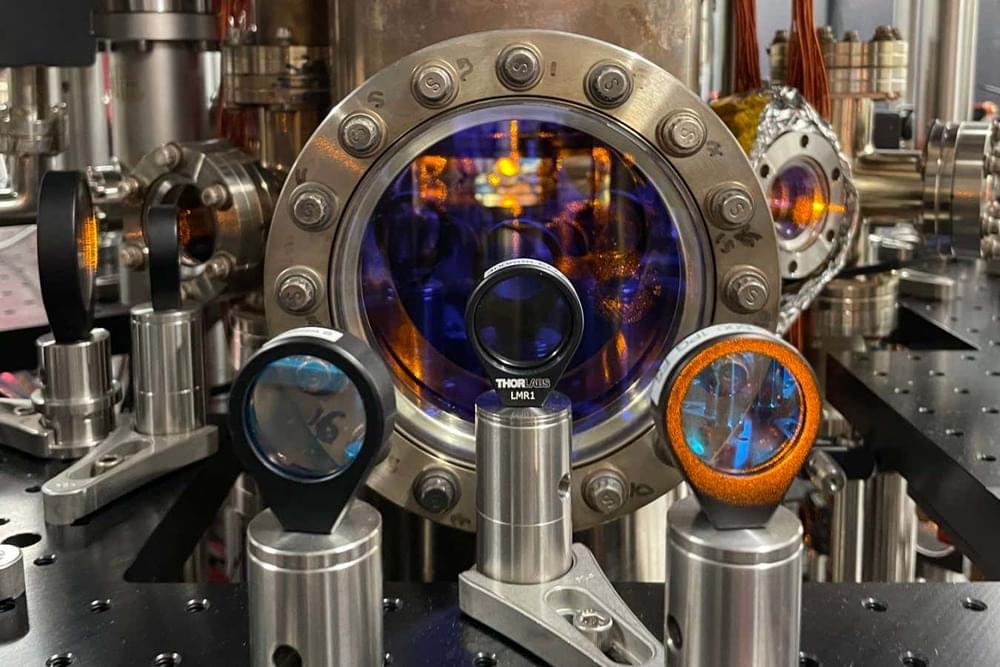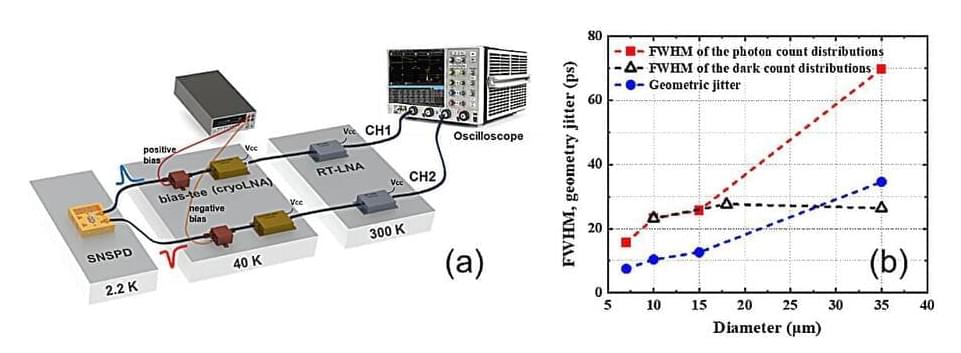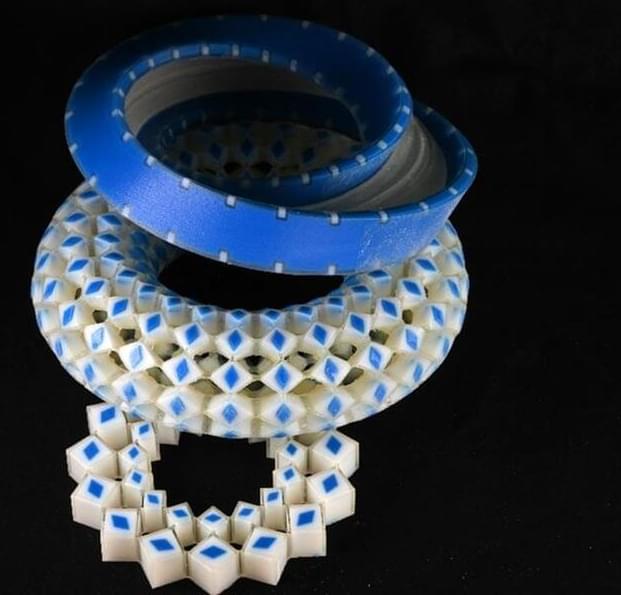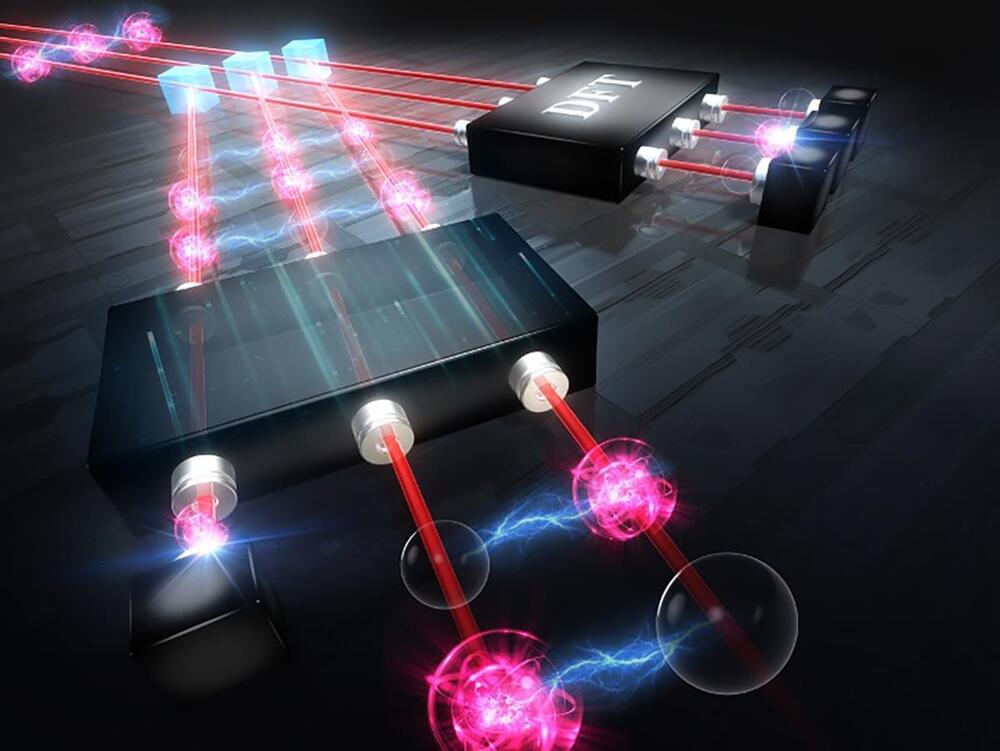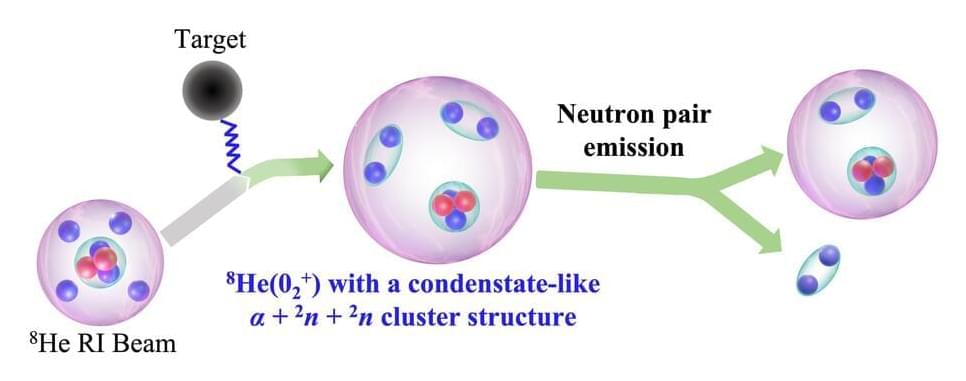A quantum state of matter comprising molecules with opposite charges at each end has been made for the first time. It could help probe our understanding of the quantum properties of exotic materials.
Category: quantum physics – Page 251
An extension of Heisenberg’s uncertainty principle, which places limits on how precisely you can measure the properties of quantum objects, has found that it really isn’t possible to cheat the laws of quantum physics.
When Google launched its Hypercomputer earlier this month (December 2023), the first reaction was, “Say what?” It turns out that the Hypercomputer is Google’s take on a modular supercomputer with a healthy dose of its homegrown TPU v5p AI accelerators, which were also announced this month.
The modular design also allows workloads to be sliced up between TPUs and GPUs, with Google’s software tools doing the provisioning and orchestration in the background. Theoretically, if Google were to add a quantum computer to the Google Cloud, it could also be plugged into the Hypercomputer.
While the Hypercomputer was advertised as an AI supercomputer, the good news is that the system also runs scientific computing applications.
In a recent leap forward for quantum computing and optical technologies, researchers have uncovered an important aspect of photon detection. Superconducting nanowire single-photon detectors (SNSPDs), pivotal in quantum communication and advanced optical systems, have long been hindered by a phenomenon known as intrinsic dark counts (iDCs). These spurious signals, occurring without any real photon trigger, significantly impact the accuracy and reliability of these detectors.
Understanding and mitigating iDCs are crucial for enhancing the performance of SNSPDs, which are integral to a wide range of applications, from secure communication to sensitive astronomical observations.
A team headed by Prof. Lixing You and Prof. Hao Li from Shanghai Institute of Microsystem and Information Technology (SIMIT), Chinese Academy of Sciences (CAS) employed a novel differential readout method to investigate the spatial distribution of iDCs in SNSPDs with and without artificial geometric constrictions. This approach allowed for a precise characterization of the spatial origins of iDCs, revealing the significant influence of minute geometric constrictions within the detectors.
A groundbreaking discovery in metamaterial design reveals materials with built-in deformation resistance and mechanical memory, promising advancements in robotics and computing.
Researchers from the University of Amsterdam Institute of Physics and ENS de Lyon have discovered how to design materials that necessarily have a point or line where the material doesn’t deform under stress, and that even remember how they have been poked or squeezed in the past. These results could be used in robotics and mechanical computers, while similar design principles could be used in quantum computers.
The outcome is a breakthrough in the field of metamaterials: designer materials whose responses are determined by their structure rather than their chemical composition. To construct a metamaterial with mechanical memory, physicists Xiaofei Guo, Marcelo Guzmán, David Carpentier, Denis Bartolo, and Corentin Coulais realized that its design needs to be “frustrated,” and that this frustration corresponds to a new type of order, which they call non-orientable order.
Innovative quantum-inspired imaging technique excels in low-light conditions, offering new prospects in medical imaging and art conservation.
Researchers at the University of Warsaw’s Faculty of Physics with colleagues from Stanford University and Oklahoma State University have introduced a quantum-inspired phase imaging method based on light intensity correlation measurements that is robust to phase noise. The new imaging method can operate even with extremely dim illumination and can prove useful in emerging applications such as in infrared and X-ray interferometric imaging and quantum and matter-wave interferometry.
Revolutionizing Imaging Techniques
A team of Japanese researchers has discovered significant properties of non-Fock states (iNFS) in quantum technology, revealing their stability through multiple linear optics and paving the way for advancements in optical quantum computing and sensing.
Quantum objects, such as electrons and photons, behave differently from other objects in ways that enable quantum technology. Therein lies the key to unlocking the mystery of quantum entanglement, in which multiple photons exist in multiple modes or frequencies.
In pursuing photonic quantum technologies, previous studies have established the usefulness of Fock states. These are multiphoton, multimode states made possible by cleverly combining a number of one-photon inputs using so-called linear optics. However, some essential and valuable quantum states require more than this photon-by-photon approach.
Businesses and government agencies must scan code for RSA & old protocols, replacing them with post-quantum cryptography to thwart quantum threats to encryption.
Researchers at Peking University in China have successfully observed the elusive 02+ state of 8 He, revealing a novel cluster structure with two strongly correlated neutron pairs. This finding provides insights into exotic nuclear structures and their potential implications for understanding neutron stars. The findings are published in Physical Review Letters.
The conventional nuclear model in physics posits a single-particle picture where nucleons, protons, and neutrons move independently within a nucleus, forming a well-defined shell structure. Governed by a mean potential created by nuclear forces, nucleons fill distinct energy levels or shells, leading to increased stability associated with magic numbers.
This model, rooted in quantum mechanics, successfully explains nuclear structure and stability but encounters limitations when addressing exotic nuclei, particularly those that are neutron-rich and unstable.
In 2015, the LIGO/Virgo experiment, a large-scale research effort based at two observatories in the United States, led to the first direct observation of gravitational waves. This important milestone has since prompted physicists worldwide to devise new theoretical descriptions for the dynamics of blackholes, building on the data collected by the LIGO/Virgo collaboration.
Researchers at Uppsala University, University of Oxford, and Université de Mons recently set out to explain the dynamics of Kerr black holes, theoretically predicted black holes that rotate at a constant rate, using theory of massive high-spin particles. Their paper, published in Physical Review Letters, specifically proposes that the dynamics of these rotating black holes is constrained by the principle of gauge symmetry, which suggests that some changes of parameters of a physical system would have no measurable effect.
“We pursued a connection between rotating Kerr black holes and massive higher-spin particles,” Henrik Johansson, co-author of the paper, told Phys.org. “In other words, we modeled the black hole as a spinning fundamental particle, similar to how the electron is treated in quantum electrodynamics.”
